During the week of the Stonewall riot’s 50th anniversary, black, Latinx, and migrant transgender women marched in El Paso, Texas. The protest on Tuesday, organized by a coalition of advocacy groups, attempted to bring attention to the deaths of trans women in United States immigration detention, as well as the fatal shootings of several trans women in the country so far this year.
The march in El Paso took place not far from the hospital where Johana Medina Leon, a trans asylum seeker from El Salvador, died after falling increasingly ill in Immigration and Customs Enforcement custody earlier this month. Medina Leon’s death brought renewed attention to the treatment of trans people—in particular trans women—in ICE custody, with advocates alleging that detention centers are rife with abuse, medical neglect, and harassment.
Úmi Vera, the campaign director for Familia: Trans Queer Liberation Movement—an advocacy organization that works for the rights of immigrants trans people—says that, while Pride Month and the Stonewall anniversary are causes for celebration among some members of the queer community, for trans women of color, the fight is very much ongoing.
“Stonewall is now. It’s still happening,” Vera says. “Stonewall in New York was led by trans women of color, Marsha P. Thompson and Sylvia Rivera, and I think this particular component to Stonewall—trans women of color leading charges to addressing state violence—is a key component of this Pride Month.”
In the last year, Vera’s advocacy group has organized events across the country to bring attention to the deaths of trans women in immigration detention facilities. A little over a year before Medina’s death, in May of 2018, Roxsana Hernandez Rodriguez, a trans Honduran asylum seeker, also died in ICE custody. An independent autopsy found that, while Hernandez Rodriguez died of dehydration, her body also showed signs of physical abuse. (ICE has denied that Hernandez Rodriguez experienced abuse while in custody.) Vera says that the sort of conditions trans women experience in immigration detention amount to what she describes as “state violence.”
Mariah Moore, who works with the Transgender Law Center as part of the trans rights advocacy organization’s Black Trans Circle project, said she was initially nervous when the march organizers reached out to see if she’d like to fly into El Paso from her home in New Orleans.
“I instantly said yes, but I wasn’t really sure how I would contribute, or what resources I could bring to the cause,” Moore says. “But then I thought about my own oppressions in the black community, with black trans women, and how our Latinx sisters and brothers are in many of the same situations, if not worse situations.”
Moore points out that many of the issues affecting trans migrant women also affect black trans women, noting in particular that, in jails and prisons across the south, officials will respond to inmates harassing trans women by placing trans women in solitary confinement (ostensibly for their own safety). ICE has also used similar “protective solitary confinement” techniques as a response to detainees harassing and assaulting trans women. (The dangerous psychological effects of solitary confinement have been well documented.)
The march, Moore says, was a way for advocates for trans migrant women and black trans women to come together, “to see that we have a lot more in common, and we really need to stand together, because we can’t survive without each other.”
The demonstrations began in southern El Paso, with protesters eventually marching to the El Paso Processing Center, an ICE facility.

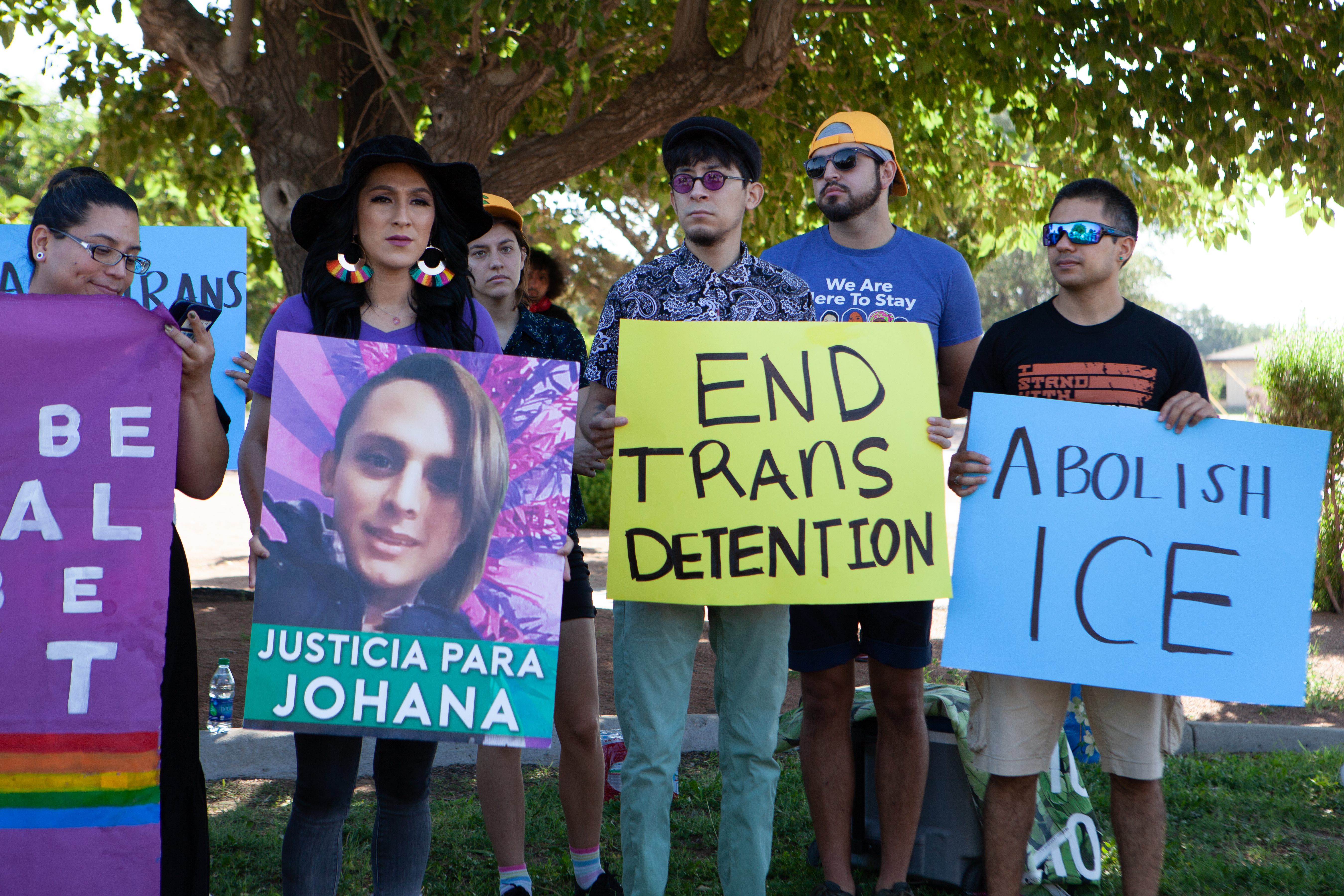
(Photo: Eurydice Thomas)
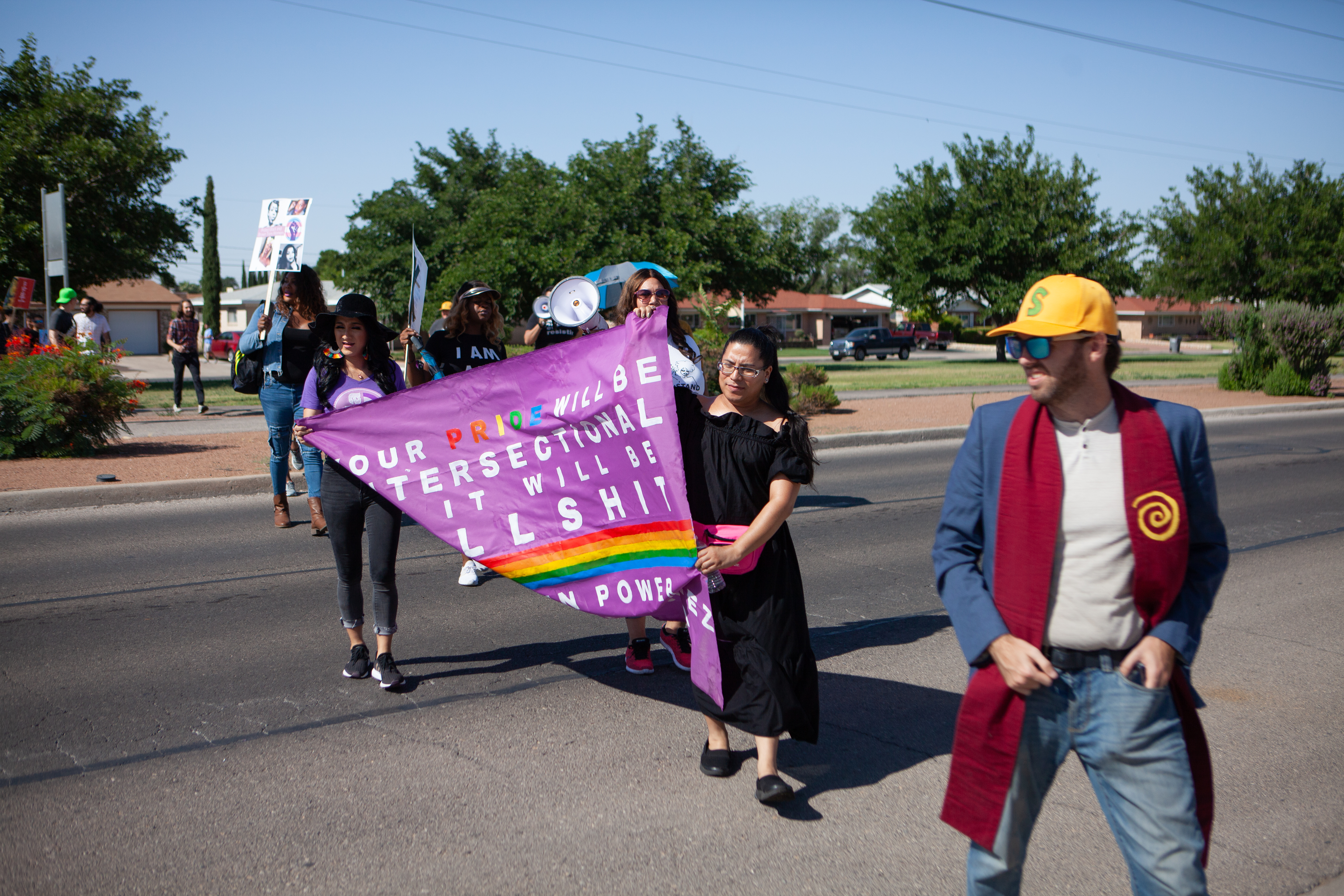
(Photo: Eurydice Thomas)
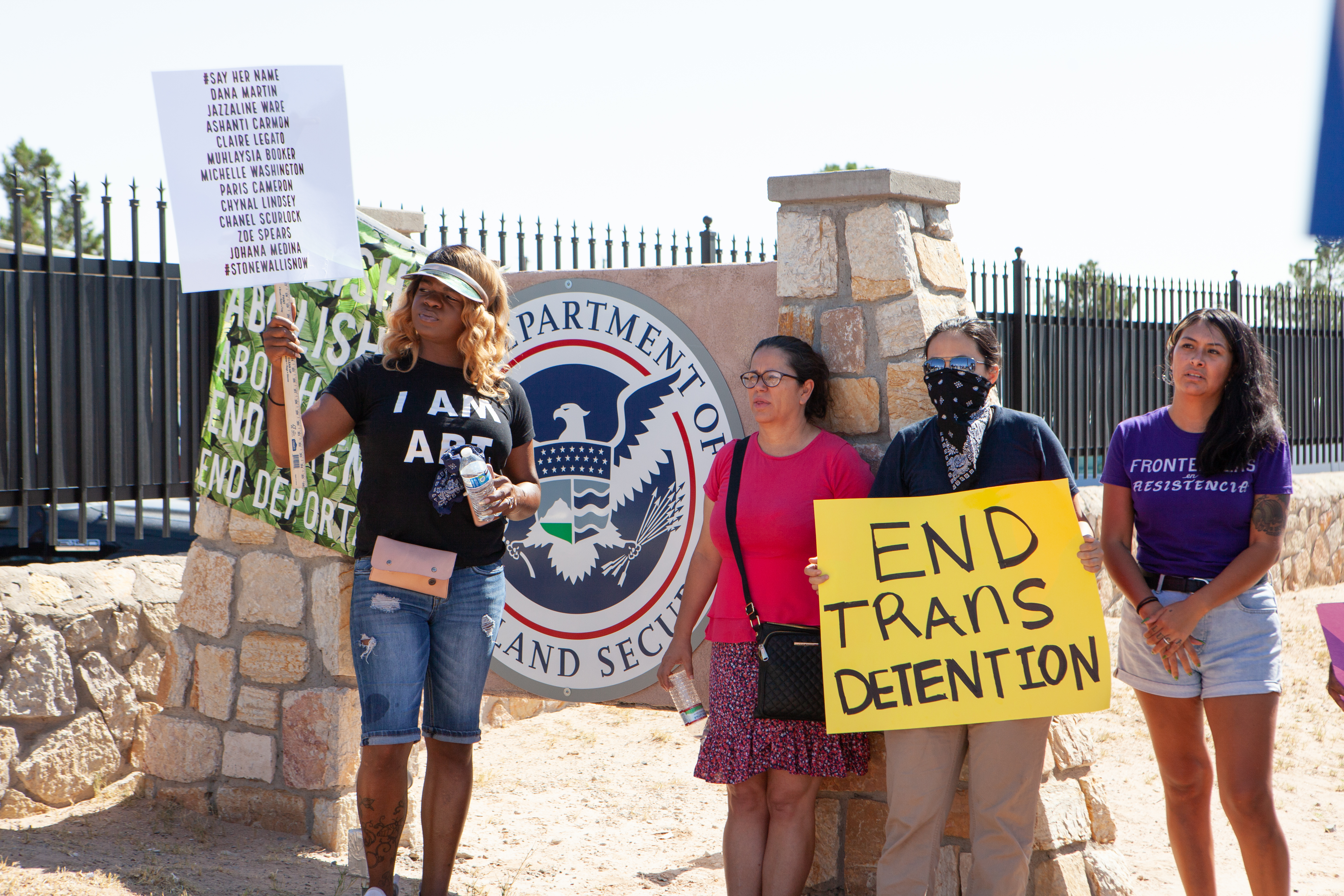
(Photo: Eurydice Thomas)
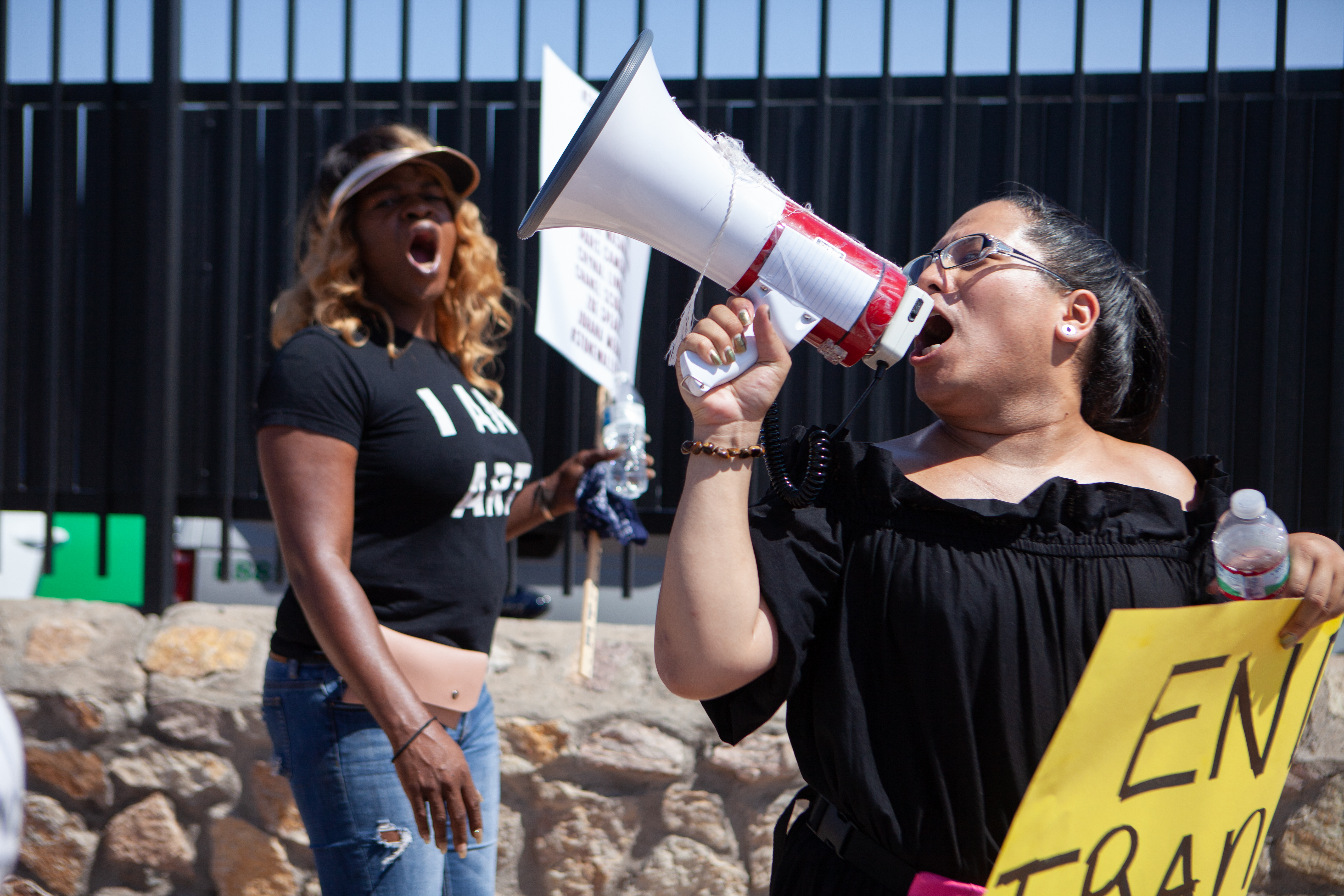
(Photo: Eurydice Thomas)
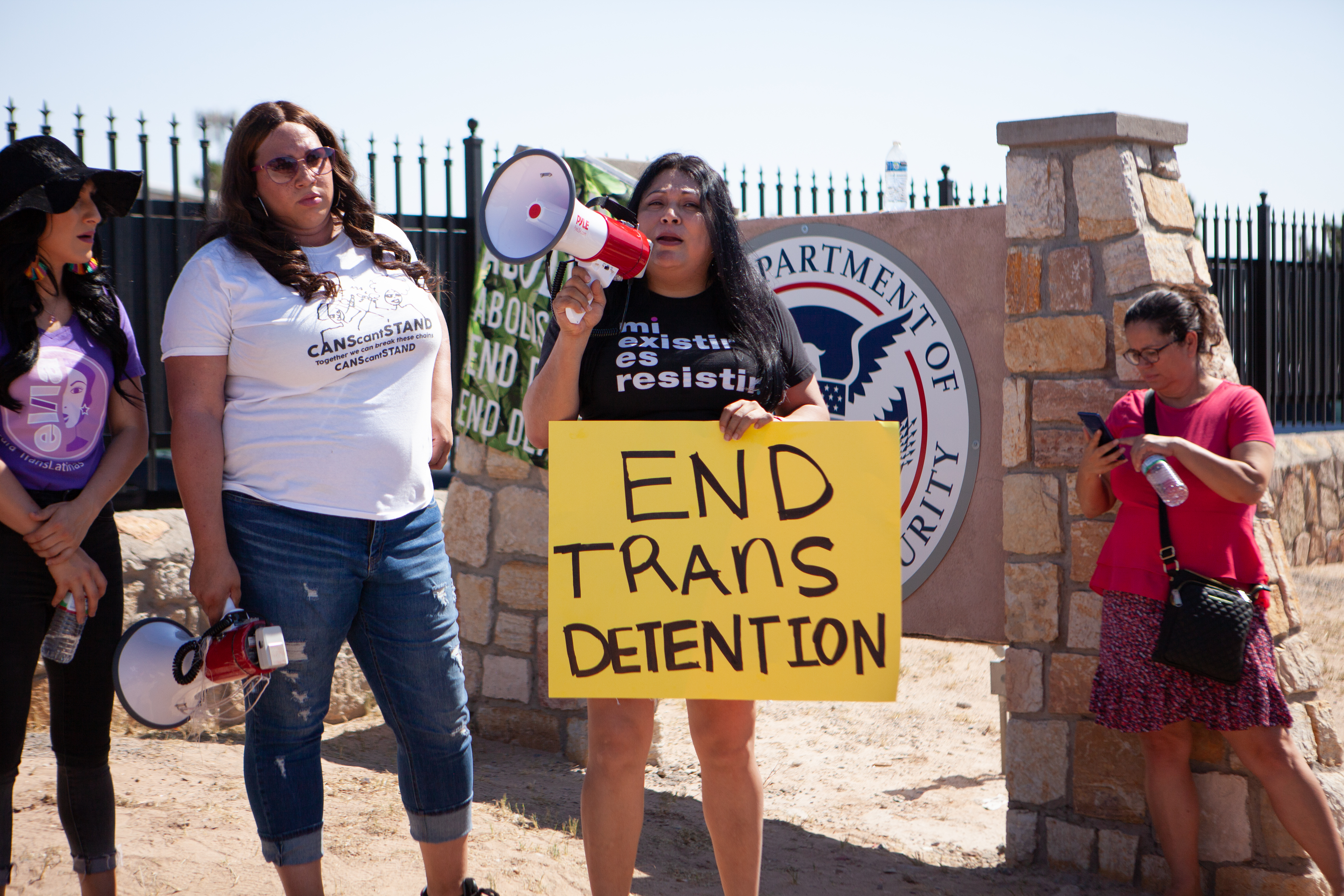
(Photo: Eurydice Thomas)
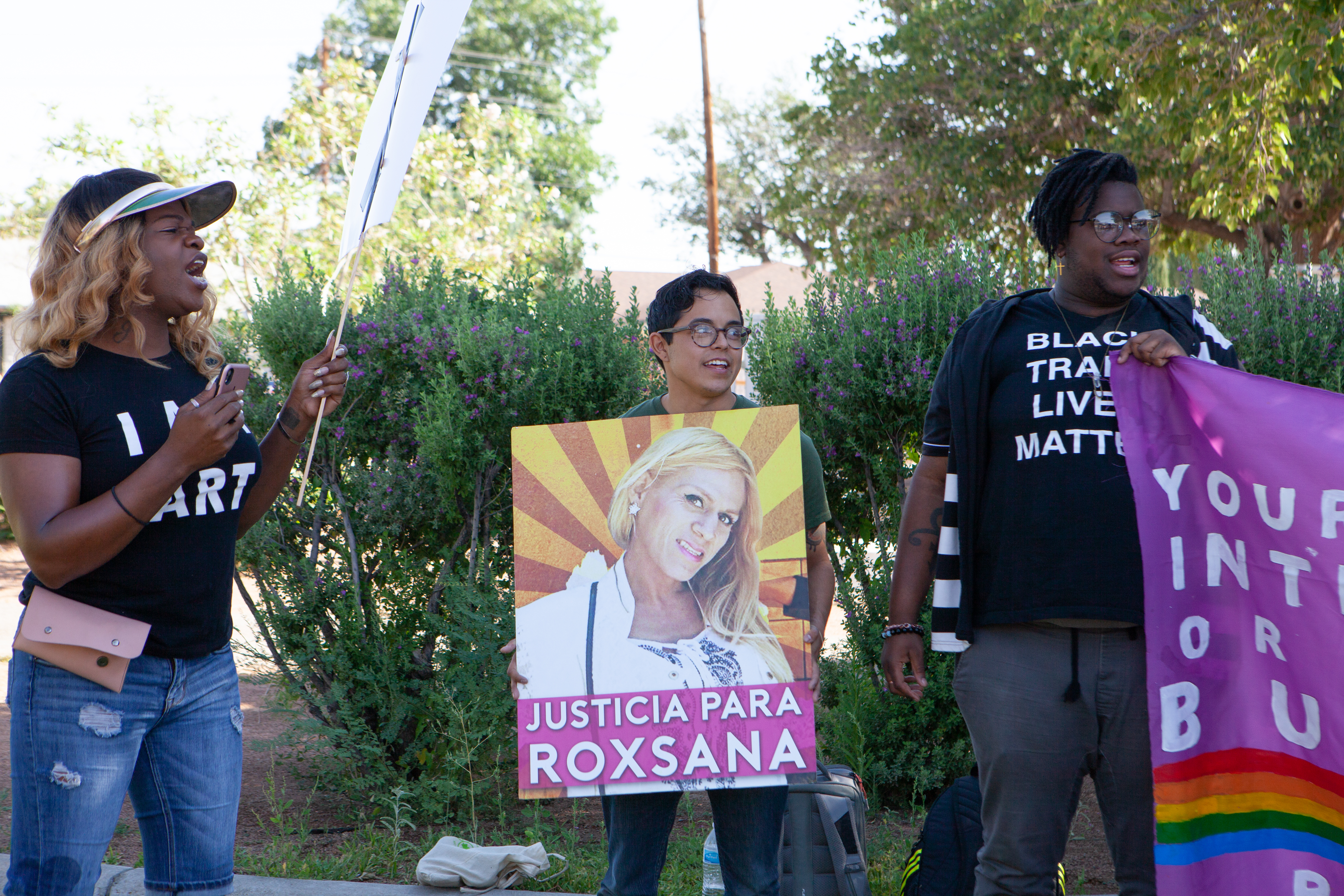
(Photo: Eurydice Thomas)




